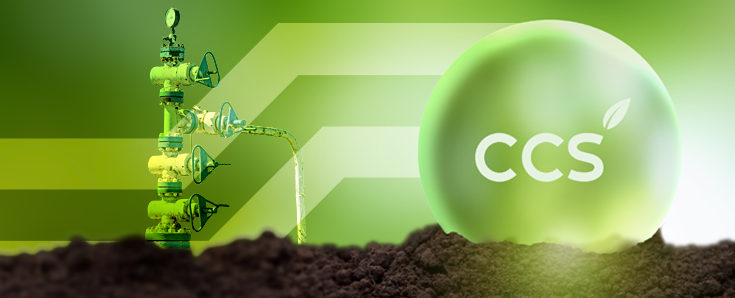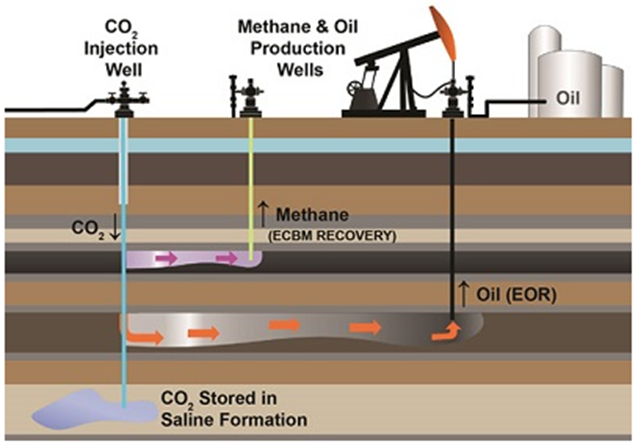Carbon Capture and Sequestration: Developments in Injection Well Metallurgy

By: Adam C. Rowe, P. E.
Carbon Capture and Sequestration (CCS) is recognized as a crucial carbon management technology, and projects to capture, transport, and store CO2 are continuing to garner significant attention. While construction of CCS facilities is in many ways similar to conventional oil and gas infrastructure, Class VI wells for the injection of supercritical CO2 into saline storage formations have additional technical complexities that need to be considered in material selection. The regulatory framework for such injection facilities is evolving, and a recent letter from the United States Environmental Protection Agency (EPA) has further underscored the importance of using appropriate materials to ensure the success of these initiatives.
The EPA’s note offers additional guidance under 40 CFR Part 146 Subpart H, specifically addressing the selection of materials used in CCS injection wells. Notably, the guidance clarifies that plain 13Cr stainless steel is not considered suitable for such applications, a revelation that Stress Engineering Services’ clients were well prepared for. Furthermore, any proposal that suggests using alloys less corrosion-resistant than 22Cr in saline storage environments will be subject to a Request for Additional Information (RAI) requiring project-specific alloy justification. It is expected that corrosion testing data will be needed to demonstrate that such alloys are acceptable for their respective well conditions. Stress Engineering Services has for many years been a leader in customized and project-specific corrosion testing, and we have successfully conducted numerous tests in simulated CCS environments to support permit applications.
Understanding the intricacies of material selection for CCS injection wells is vital. Although there are obvious parallels to enhanced oil recovery (EOR) CO2 injection wells, CCS injection wells present unique integrity challenges due to the geologic locations of attractive injection horizons and the range of possible impurity profiles present in the injectate. For those seeking further insights, our editorial in the March 2024 issue of the Journal for Petroleum Technology, titled “The Difference Between CO2 EOS and CCS Injection Well-Metallurgy,” offers an in-depth comparison and analysis of the distinctions between CO2 EOR and CCS injection wells. This comparison highlights the nuanced differences and suggests further reading for material selection in CCS projects.
Stress Engineering Services has long been a pioneer in addressing these challenges. Our extensive research, expertise, experience, and testing capabilities have equipped our clients to navigate the evolving regulatory landscape effectively. Our paper, “Guidelines for the Selection of Corrosion Resistant Alloys for CCS and CCUS Injection Wells,” provides a comprehensive analysis of downhole corrosion concerns and has become a key reference in the industry. This document not only outlines the potential risks but also provides important guidance for the selection of materials that can withstand the harsh conditions of CCS environments.
At Stress Engineering Services, we are committed to advancing CCS technology through meticulous research and engineering excellence. If you need metallurgy and corrosion engineering support for your CO2 injection facilities, do not hesitate to contact us. Our team of experts is equipped to provide you with the guidance and solutions necessary to optimize your CCS projects, helping to ensure equipment integrity and safe containment of injected CO2.

As the field of CCS continues to evolve, the importance of selecting the right materials cannot be overstated. By adhering to stringent material guidelines and leveraging expert advice, project leaders can enhance the effectiveness and longevity of their CCS projects, allowing supported industries to continue producing sustainably.

Adam C. Rowe, P.E. – Principal | Metallurgical Engineer, Houston Office
Adam Rowe has over fifteen years of experience in material evaluations, corrosion assessments, welding metallurgy, and metallurgical failure analyses. In addition, he has prepared numerous material specifications and welding procedure specifications to meet industry standards and client requirements, particularly the requirements of ANSI / NACE MR0175 / ISO 15156.
Mr. Rowe holds both a Bachelor of Science degree and a Master of Science degree in Metallurgical and Materials Engineering from the Colorado School of Mines. He is a registered professional engineer in the State of Texas.




Leave a Comment
You must Register or Login to post a comment.